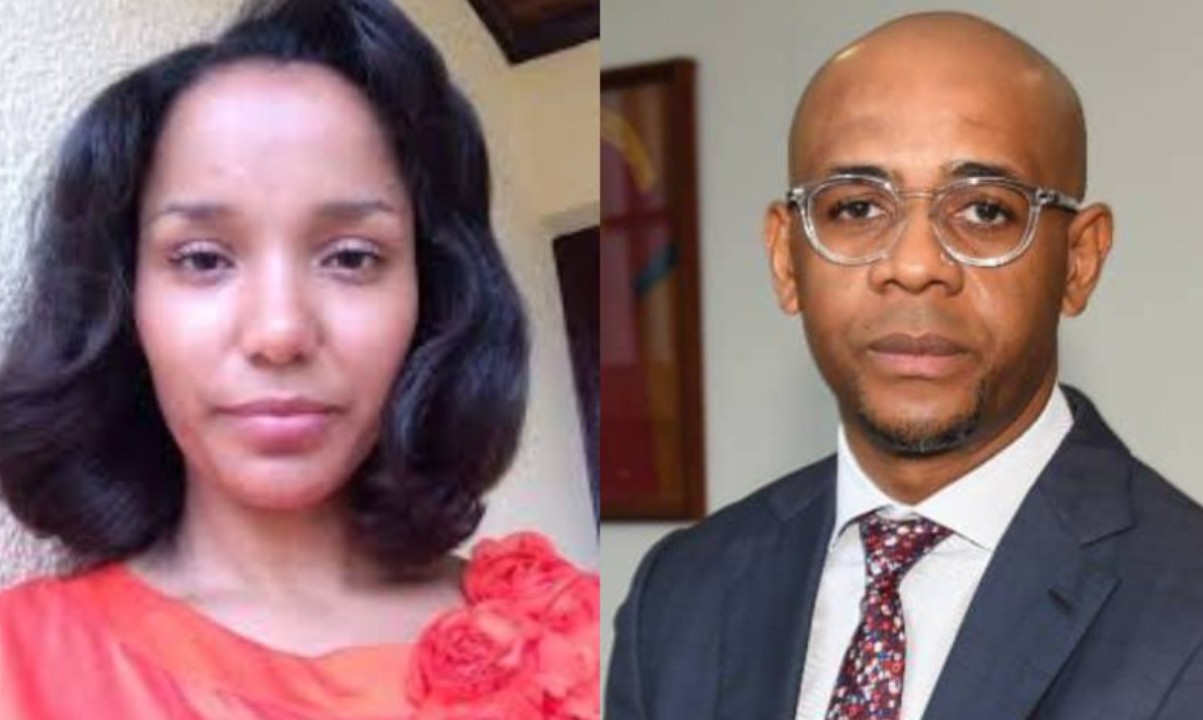Baltasar Ebang Engonga Video and Controversy Scandal
In recent months, Equatorial Guinea has been thrust into the global spotlight after a shocking scandal involving one of its high-ranking officials. Baltasar Ebang Engonga, former Director General of the National Financial Investigation Agency (ANIF), was dismissed from his position after a series of viral videos implicated him in activities with hundreds of women. The revelations have not only tarnished his career but also provoked widespread debate about morality, corruption, and governance in one of Africa’s most tightly controlled states.

The incident is particularly significant because of Engonga’s close ties to the ruling elite, as well as the government’s heavy-handed response in attempting to contain the scandal. With President Teodoro Obiang Nguema Mbasogo ordering his dismissal and other senior figures condemning the incident, the affair underscores the intersection of politics, power, and personal misconduct in Equatorial Guinea.
Contents
Background on Baltasar Ebang Engonga
To fully understand the weight of this scandal, one must look at who Baltasar Ebang Engonga is. At 54 years old, he was not just another bureaucrat. Engonga is a deeply connected political figure with powerful family ties. He is the son of Baltasar Engonga Edjo, who currently serves as the president of the Economic and Monetary Community of Central Africa (CEMAC), an influential regional institution. He is also a relative of President Obiang, often described as the longest-serving head of state in the world, who has ruled Equatorial Guinea since 1979.

On a personal level, Engonga is married and the father of six children, which made the scandal even more explosive in the eyes of many citizens. His career began in 1998 when he was appointed Minister of Education. Over the years, he rose through the ranks, eventually heading ANIF, the agency tasked with fighting financial crimes and corruption. Ironically, the man once responsible for enforcing financial accountability and ethical governance is now disgraced by allegations of misconduct on an unprecedented scale.
Emergence of the Viral Video
The turning point came when several explicit videos featuring Engonga circulated widely on social media. The footage reportedly showed him engaging in relations with multiple women, with allegations that he had been involved with more than 400 individuals. Particularly controversial was the claim that some of these women were partners of prominent figures in Equatorial Guinea, adding a layer of humiliation and betrayal for the elite class.
List of uncensored videos of Baltasar Ebang Engonga shakes the global community
baltasar-ebang-engonga-video-1.mp4
baltasar-ebang-engonga-video-2.mp4
baltasar-ebang-engonga-video-3.mp4
The videos spread like wildfire across platforms, even as the government tried to clamp down. Attempts were made to block their circulation by directing internet service providers to restrict access, but the clips had already crossed national borders. International outlets, including the BBC, sought comments from Engonga, but he remained silent, neither confirming nor denying the allegations. His silence only fueled further speculation and debate, leaving the public hungry for answers.
Government Response and Dismissal
The reaction from the state was swift and severe. Initially, Engonga was suspended from his duties, but soon after, President Obiang signed a decree formally dismissing him. The dismissal carried symbolic weight because it was issued by his great uncle, the head of state himself, signaling that not even family ties could shield Engonga from political fallout.
Vice President Teodoro Mangue, the president’s son and one of the most powerful men in the country, took to social media to issue strong warnings. He promised “severe measures” against any government officials caught engaging in acts within ministry offices. In his statement, Mangue framed the issue not just as a personal failing but as a matter of national ethics and public integrity. He emphasized that such conduct violated the code of ethics and the public morality law of Equatorial Guinea.
By taking this hardline approach, the government attempted to reassure both domestic and international audiences that it would not tolerate scandals tarnishing the state’s reputation. However, critics argue that the measures were less about ethics and more about protecting the ruling family’s image amid embarrassing revelations.
Legal and Ethical Dimensions
The Attorney General of Equatorial Guinea also weighed in on the scandal, highlighting the legal complexities. According to his statement, the recordings appeared to be consensual, which complicated the possibility of criminal charges. However, authorities noted that Engonga could potentially face prosecution for “public health crimes” if it were proven that he had transmitted transmitted infections to any of his partners.
This legal caveat opened a wider conversation about public morality, abuse of power, and the responsibilities of public officials. Even if the acts were consensual, many argued that they revealed a culture of entitlement and exploitation within the political elite. Others viewed the scandal as symptomatic of broader governance issues in Equatorial Guinea, where questions of transparency and accountability have long plagued the ruling administration.
Role of the First Lady and Public Reaction
One of the strongest condemnations came from First Lady Constancia Mangue Obiang, who described the scandal as “embarrassing.” In a meeting with Prime Minister Manuel Osa Nsue, she expressed disappointment and outrage, emphasizing the reputational damage inflicted not only on the government but also on the women of Equatorial Guinea.
Her statement, later posted on Facebook, highlighted that the scandal had crossed national borders, drawing international scrutiny. She lamented that it negatively portrayed Guineo-Ecuadorian women, reducing them to symbols in a scandal driven by one man’s misconduct.
Among the general public, reactions were mixed. Some citizens were outraged, demanding greater accountability from the ruling elite. Others expressed cynicism, noting that scandals of corruption and abuse of power are common in the country. On social media, the videos and related commentary went viral, sparking debates about morality, power, and hypocrisy within the ruling class.
Wider Implications for Equatorial Guinea
The scandal’s ripple effects extend far beyond Engonga’s personal downfall. At the international level, it has further damaged the country’s image, reinforcing stereotypes of corruption and moral decay within its leadership. For a government already battling accusations of mismanagement and authoritarianism, the incident is a major setback.
Domestically, the scandal has strained relationships within the ruling elite. Engonga’s family ties to CEMAC and the presidential family made the issue particularly sensitive. His dismissal sends a message that loyalty and kinship are no longer guarantees of protection in the face of public scandals.
The government’s decision to censor the videos also sparked debate about censorship and freedom of information. While officials justified the move as a way to protect public morality, critics argued it was an attempt to control the narrative and shield the ruling elite from further embarrassment.
Looking forward, the case may influence how future governance and anti-corruption reforms are framed. If the government is serious about restoring credibility, it may need to demonstrate greater transparency and consistency in applying rules of conduct across all officials, not just in high-profile scandals.
The scandal involving Baltasar Ebang Engonga marks one of the most shocking episodes in Equatorial Guinea’s recent political history. Once a respected official leading the country’s anti-graft efforts, he is now disgraced, dismissed, and remembered for a scandal that shook the political establishment.
His downfall highlights the intersection of personal misconduct, political power, and public accountability. It also exposes the fragility of reputation in the digital age, where a single viral video can upend decades of political career-building.
For Equatorial Guinea, the incident poses a difficult challenge: how to balance the protection of its image with the need for genuine accountability and ethical governance. Whether this scandal becomes a turning point or just another episode in the long history of elite misconduct remains to be seen. What is clear is that the Engonga case will be remembered as a defining moment where the personal excesses of the powerful collided with the growing power of social media and global public opinion.
Daily News -Phillies Yankees Couple Fan Video and Debate Across Social
Mauro Icardi Ifsa Video and Scandal, Denial, Public Debate
Felix Baumgartner Death Video and The Fatal Crash
Otávio Jordão da Silva Video and Mob Justice
Justin D Mohn Video and National Alarm, Political Rant
Gabriela Lima Santana Video and Chilling Case
Alejandro Gonzalez Video and Died Heroically in Cancun

